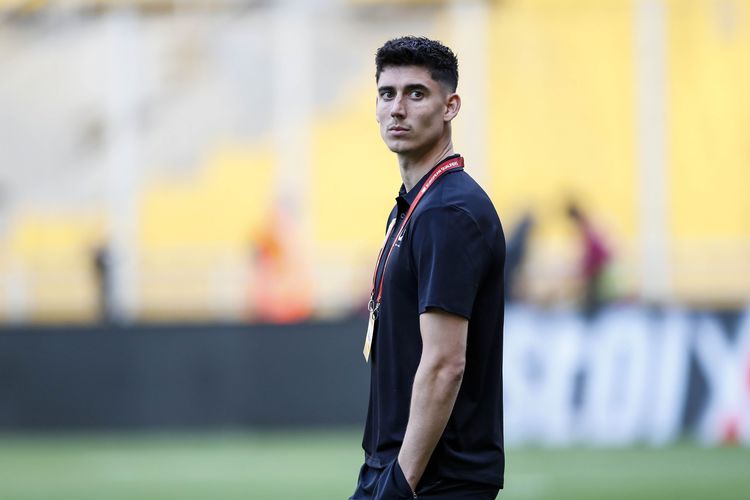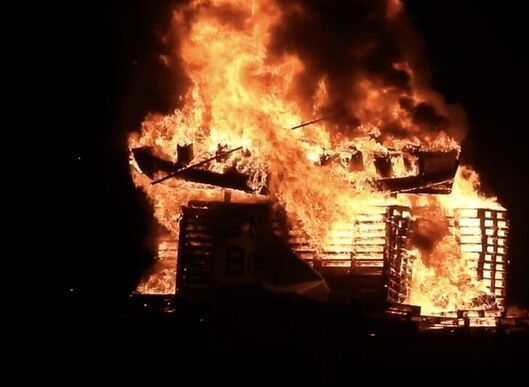Greta Thunberg, who is in New York this week for the United Nations Climate Change conference and who testified before Congress on Tuesday.
By Ross Walsh
The Amazon is burning. So, too, are other rainforests around the world.
By now, billions of people across the globe are aware of these ongoing disasters.
And they are especially aware of those first four words.
Four words plastered across every newspaper. Four words spoken on every news broadcast. Four words popping up again and again on every Facebook, Twitter and Instagram feed. By now, we all know that the Amazon is burning.
The question is: why should any of us care?
Sure, the loss of the rainforest is a tragedy, but in a world of spiraling living costs, stagnating wages, the resurgence of right-wing populism and the potential for looming economic collapse does a forest fire half the world away really warrant the lion’s share of attention?
The truth is that the crisis in the Amazon actually deserves even more attention than it is currently receiving.
The Amazon rainforest is no longer simply a large cluster of trees in South America. It has become a symbol of a much wider and more threatening problem for our planet, and for our very way of life.
Wildfires are of course quite common in forested regions. California is forced to deal withextreme wildfires every summer.
So what makes the Amazon fires different?
In the first instance, it’s because these fires are not natural, at least not completely so.
Spurred on by the anti-science rhetoric and climate change denial of Brazilian President Jair Bolsonaro, and by the increased demand for cattle ranching land in light of the Mercosur Trade deal between the European Union and a number of South American countries, some Brazilians seem to have decided to put the rainforest to the torch.
Both Ireland and France have threatened to block the Mercosur deal if Brazil does not upload its responsibilities to protect the environment, although a more cynical observer might presume the seeming environmental concern hides a desire to protect the profits of their own respective beef industries.
As well as this, at the recent G7 meeting of the most industrialized countries in the world, $20 million was allocated to help fight the fires in the Amazon.
Bolsonaro’s response to this was to initially reject the admittedly meager financial aid, and to accuse “the West” of colonialist imperialism and of meddling in the national affairs of his country.
His attempts to twist any situation to make himself and his supporters the victims are reminiscent of President Trump, and are just one of many comparisons between the two heads of state. However, to see which country is truly engaging in imperialism, look to the hundreds of Amazonian tribes now watching their way of life burning down all around them.
For generations the forest has been their home, and now, because of greed and short-sighted populism, their land will be cleared and used for unsustainable beef farming.
Beef and dairy farming, while a major part of the economies of countries such as Ireland, has a huge negative impact on the environment in an unfortunately wide variety of ways.
The pollution from these farms, should it make its way into a water source, can cause widespread die-offs of aquatic life.
The cows themselves produce large amounts of methane, an even more powerful greenhouse gas than CO2. And speaking of CO2, by clearing trees and other plant life to make room for these farms we remove the planet’s primary carbon sinks, leaving more greenhouse gases in the atmosphere.
The Amazon rainforest is particularly important in this regard. The air we breathe is literally under attack right now in the jungles of South America. We have already been told that should we lose the polar ice caps we will drown in rising sea levels. If we lose the Amazon, not only will the heating of the planet and rising sea levels accelerate under the increased CO2 in the atmosphere, but we may just suffocate before the water reaches us.
Dr. Yuval Noah Harari states in his bestselling book, “Homo Deus, A Brief History of Tomorrow,” that “An ecological meltdown will cause economic ruin, political turmoil, a fall in human standards of living, and might threaten the very existence of human civilization.”
The threat of the Amazon fires is not just to the hundreds of native tribes watching their homes turn into cattle ranches. The threat is not just to the myriad of animals and plants in the rainforest now inching closer to extinction. The Amazon has become the latest battleground in the war for the survival of the human race.
Bolsonaro, Trump, and others like them are not stupid. Their problem is not that they don’t understand the science behind climate change. They have knowingly chosen to reject science in favor of short term profit.
Whether they are burning down the rainforest, or pumping money into the fossil fuel industry, they know exactly what kind of environmental damage future generations will have to deal with. And as long as the money keeps flowing, they don’t care.
These are not the leaders that we as a species need to lead us out of the climate crisis facing the planet. We need to look to people such as UN Secretary-General António Guterres, who said on August 22: “In the midst of the global climate crisis, we cannot afford more damage to a major source of oxygen and biodiversity. The Amazon must be protected.”
We need to look to the leaders of tomorrow like 16-year-old Greta Thunberg, the Swedish climate activist who recently arrived in New York City after completing a zero-carbon journey across the Atlantic Ocean.
These are the leaders who really care about you. Not about the short-term profit they might be able to bring you by destroying the environment around you, but about you and your children’s ability to live happy, healthy lives on a thriving and habitable planet.
We have a responsibility, as human beings, to pass our planet onto our children in a much better shape than we’re currently going to leave it. That is why everyone should care about the Amazon burning.
Ross Walsh is an Irish Masters in Journalism graduate and freelance reporter. He has written for The Irish Times and Al Jazeera, and is currently living and working in New York City.









